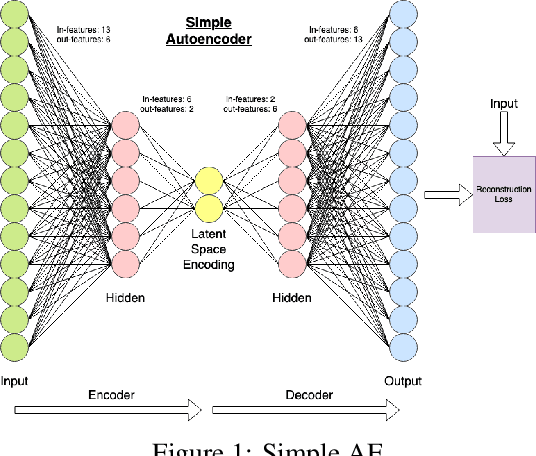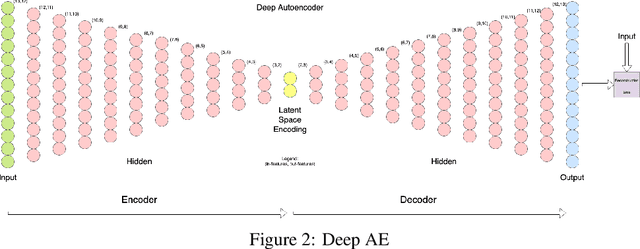Get our free extension to see links to code for papers anywhere online!Free add-on: code for papers everywhere!Free add-on: See code for papers anywhere!
Kevin Cant
Anomaly Detection with SDAE
Apr 09, 2020Figures and Tables:







Abstract:Anomaly detection is a prominent data preprocessing step in learning applications for correction and/or removal of faulty data. Automating this data type with the use of autoencoders could increase the quality of the dataset by isolating anomalies that were missed through manual or basic statistical analysis. A Simple, Deep, and Supervised Deep Autoencoder were trained and compared for anomaly detection over the ASHRAE building energy dataset. Given the restricted parameters under which the models were trained, the Deep Autoencoder perfoms the best, however, the Supervised Deep Autoencoder outperforms the other models in total anomalies detected when considerations for the test datasets are given.
* 9 pages, 20 figures
Via
 Add to Chrome
Add to Chrome Add to Firefox
Add to Firefox Add to Edge
Add to Edge